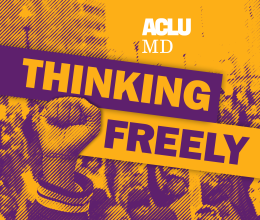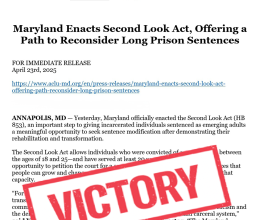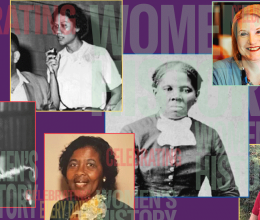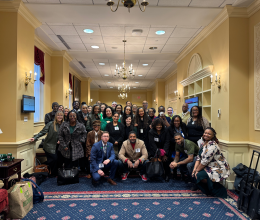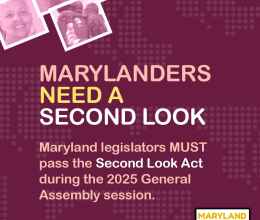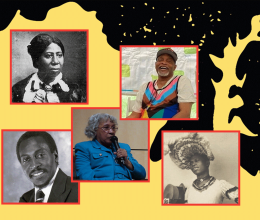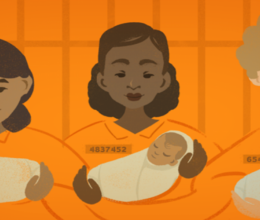
This Women’s History Month, the ACLU wants to highlight a woman who is making a difference in her community and demanding equality for women entangled in the legal justice system. Qiana Johnson, Executive Director of Life After Release, is a formerly incarcerated person who has been advocating for pre-release centers for women preparing to return to their communities.
Pre-release centers build the foundation to a successful transition and reduce recidivism rates. Going from prison back into the community can often be a daunting task. Pre-release centers would help women by providing employment opportunities, the ability to reconnect with family, access to healthcare, and more. Currently, there are ZERO pre-release centers for women in Maryland, while men have nine. It is vital that men have those resources, but women need them too.
“Think about it like a goldfish,” said Qiana Johnson. “The goldfish comes in a bag and it has room temperature water. And if you don’t sit that bag in the bowl of water that it’s going to be living in, if you just pour that fish into that water, it’s going to die because it’s going to be shocked by going from that one environment into the other environment where the climates are a little different. So, if you think about a prerelease center, the prerelease center is basically that process of putting that fish into another water so that it can acclimate itself.”
Dedicated prerelease facilities help people adjust to returning to the community with tools they would need to successfully transition. Remember that the majority of women will be coming back to society. When they do, they will face enormous barriers to a successful transition, like housing and employment, which is why the need for a pre-release center is so dire.
One of the main reasons, historically, for the state’s denial of resources for women in prison is that our prison system was designed to incarcerate men. Mass incarceration and prerelease discussions seldom include women, the trauma that they experience, and their specific needs.
Qiana said: “When men go to prison, they have their mama, their baby’s mama, their grandmama. All the mamas step up to help them and to support them. However, when the mama goes away there is very little care or regard for her.”
It’s unfair that women do not have access to even nearly the same resources as men. Most women who are incarcerated are mothers, and 75 percent of them are the primary or sole caretakers of children. Their incarceration tears families apart. And their communities depend on their healthy and successful transition when returning from prison.
“What I want people to know about incarcerated women is that we are human beings,” said Qiana. “There is a different level of harm that is caused when a woman is separated from her children and her community. When you incarcerate a woman, you incarcerate an entire community of folks.”
To truly fix the inequality that women in jail are currently facing, we need to provide equal and sufficient re-entry services to all people returning from Maryland prisons. HB 801/SB 684 will mandate that Maryland run a dedicated pre-release center for women, with gender-based services tailored to their needs. If these bills pass, the state may run many pre-release centers in different locations, close to the communities women will return to.
Women feel the impact when they need to access social services to support their transition. “Maryland is a pretty big state,” said Qiana. “If I live in Baltimore for 18 months in a prerelease center and I get social services, then I’m going to have to redo those services in the county in which I live because I have to go and switch everything over. It’s a good thing, but it’s a false start because you have to redo everything when you get back to your county where you live.”
These rehabilitation services are not luxuries. They are necessary and should be required, so that women can move forward and thrive in their communities when they return home.
If you’d like to learn more about Qiana’s work in the community and the importance of a pre-release facility for women, please listen to our Thinking Freely podcast episode, “Women Exiting Incarceration Demand Better”.
